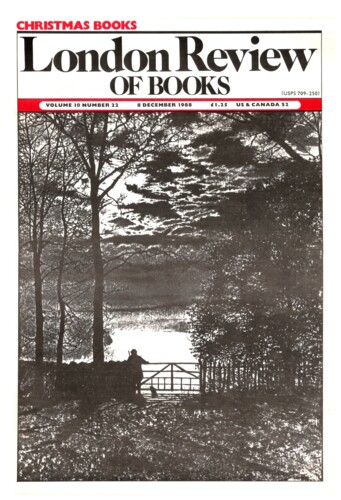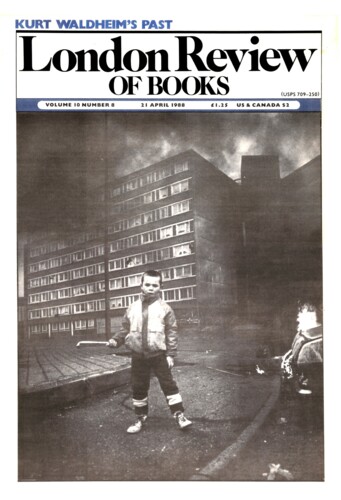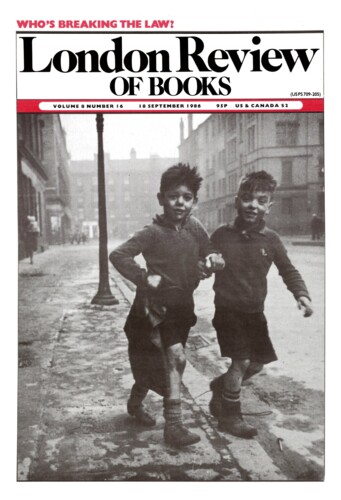History is always to hand
Douglas Johnson, 8 December 1988
In his novels, the late Gwyn Thomas used to refer to those who frequented the pubs and cafés of small Welsh towns as ‘the voters’. It would certainly be the way to describe the adult population of France who, last spring, voted twice to elect a President (on 24 April and 8 May) and twice to elect a Parliament (on 5 and 12 June). In September they voted in local elections, and in November the referendum on the future of New Caledonia took place. Many of them are now thinking about how they will vote in next year’s municipal and European elections, and some wiseacres point out that the Constitution would allow the President, if he so wished, to dissolve the present Assembly in May 1989 and start the whole round all over again. Readers of René Rémond’s history of France in the 20th century will find these cascades of elections less surprising. On 16 November 1919, there were parliamentary elections; on 30 November and 7 December, municipal elections; on 14 and 21 December, elections for the general councils. Thus the French voted on five Sundays out of six, and in the following January those who were entitled to vote by indirect election chose two-thirds of the Senate and a new President of the Republic. The high level of abstentions in those Assembly elections – around 30 per cent – ought to have prepared the experts at any rate for the similar abstention level of June 1988 and the very much higher level (around 63 per cent) in November.





